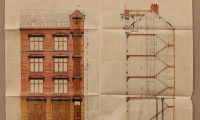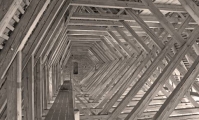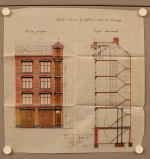Historical urban warehouses represent a significant chapter of port cities’ economic and industrial history. As functional, rational and ubiquity building typology, they are a rich and relevant research subject for typological, urban, social, architectural and structural analyses. Today, most warehouses have lost their original storage function and since they occupy valuable plots in the city centres, they are continuingly being threatened by the speed and intensity with which the urban space is being redeveloped under pressure of the growing population. Despite their historic importance as part of the industrial heritage of the port cities, this building typology was for a long time unappreciated and ignored, as the knowledge on warehouses was limited and an overall study to fully understand their historic significance and character-defining features was missing.
To bridge this gap and to acquire a profound knowledge of warehouses, the rich variety of nineteenth- and early-twentieth-centuries warehouses in three main Belgian port cities was studied. This doctoral dissertation introduces a comparative analysis of the existent and demolished warehouses in Antwerp, Brussels and Ghent through a systematical approach on three levels: the city, neighbourhood and building level. This allows to analyse level-overarching phenomenons, such as the influence of the stored goods, of the local, national and international trade networks and of the transportation facilities on the characteristics of the warehouses. Moreover, the defining of several warehouse types based on the stored goods proves essential to understand warehouses’ character-defining features, since storage requirements of goods and specificities of their trade had an impact on the location, embedment in the urban fabric, organisation, architecture, load-bearing structure and materialisation of warehouses. The developed knowledge aims to enhance the preservation and adaptive reuse of this robust but vulnerable industrial heritage for future generations, and shows that the reconversion of each warehouse demands a unique approach.
(image: Brussels urban warehouse. Building permit 15920, 1898. © Archives de la Ville de Bruxelles | Archief van de Stad Brussel)





